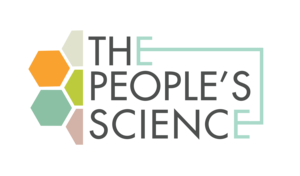RELEVANT ORGANIZATIONS
These are organizations with science communication as a core part of their mission and provide multiple ways for researchers to get involved.
Know of a resource you'd like to see added to this list? Submit here.
FEATURED PARTNERS
ComSciCon is a series of workshops focused on the communication of complex and technical concepts organized by graduate students, for graduate students. Attendees meet and interact with professional communicators, build lasting networks with graduate students in all fields of science and engineering from around the country, and write and publish original works.
The March for Science began as a movement to march in the support of science. In 2017, more than one million people around the world gathered together in the largest event for science advocacy in history. The March for Science aims to build a future where science informs the policies that impact our lives and communities. They organize, support, and amplify science outreach and advocacy efforts in communities around the world. Take part in science advocacy through contacting one of the March for Science satellites that exist in hundreds of cities around the world.
Joe's Big Idea (JBI)
JBI was started by NPR Science Correspondent Joe Palca in 2012, in an effort to tell stories about the processes of science and invention. During his travels, Joe interacted with many young scientists who wanted to become better communicators. So, Joe started the group - Friends Of Joe's Big Idea (FOJBIs).
ADDITIONAL ORGANIZATIONS
"I'm a Scientist" allows scientists put up a profile on this site, answer students’ questions about science, their research, the universe and beyond. They engage directly with students in live text-based chats. Students vote for their favorite scientist to win £500 to spend on further public engagement. (UK based).
What you can do:
With new funding from the National Science Foundation Advancing Informal STEM Learning (AISL) program in 2016, the Center for Advancement of Informal Science Education (CAISE) is expanding the community it serves to include scientists, as well as communication and engagement professionals whose job it is engage a diversity of audiences through education, outreach or broader impacts of research activities.
Browse Science Communication Resources based on scientific discipline and learning environment.
Read reports of science outreach studies
Read the Principal Investigator's Guide: Managing Evaluation in Informal STEM Education Projects
Search and browse assessment tools by environment, resource, audience, content, and funding source.
WHO IT'S FOR: Researchers who would like to work with and inspire young people
What you can do:
Create a partnership with schools, festivals, businesses, local communities, science and discovery centers, student volunteers, students, or museums and libraries.
Browse their Work With Us page for potential collaborations.
Learn more about public engagement by clicking on the Explore, Support, Plan, and Do sections of their website.
PCST is a network of individuals from around the world who are active in producing and studying PCST. It sponsors international conferences, an electronic discussion list, and symposiums. The aim is to encourage discussion and debate across professional, cultural, international, and disciplinary boundaries.
Join the discussion list for general communications, or the second discussion list for graduate students in science communication
Browse upcoming events and calls for proposals.
American Association for the Advancement of Science
The Center’s activities focus on providing scientists and scientific institutions with opportunities and resources to have meaningful conversations with the public:
Explore the resources in the Public Engagement section and the Communicating Science section.
Host a Communicating Science workshop
ADDITIONAL RESOURCES:
Science in Public. Science in Public is a science communication and public relations business based in Melbourne. They encourage and challenge scientists to reach the public, politicians and the media, while staying true to the science.They offer training and regular conferences to promote science communication.
NYC Science Communication. PhD students in STEM fields are passionate about science communication and consider pursuing a career in science education, science writing, medical writing, or medical science liaison. NYCSciComm aims to guide students to navigate career options in science communication, build strong and supportive professional networks among peers, and bring accessible and digestible scientific concepts to the public.








